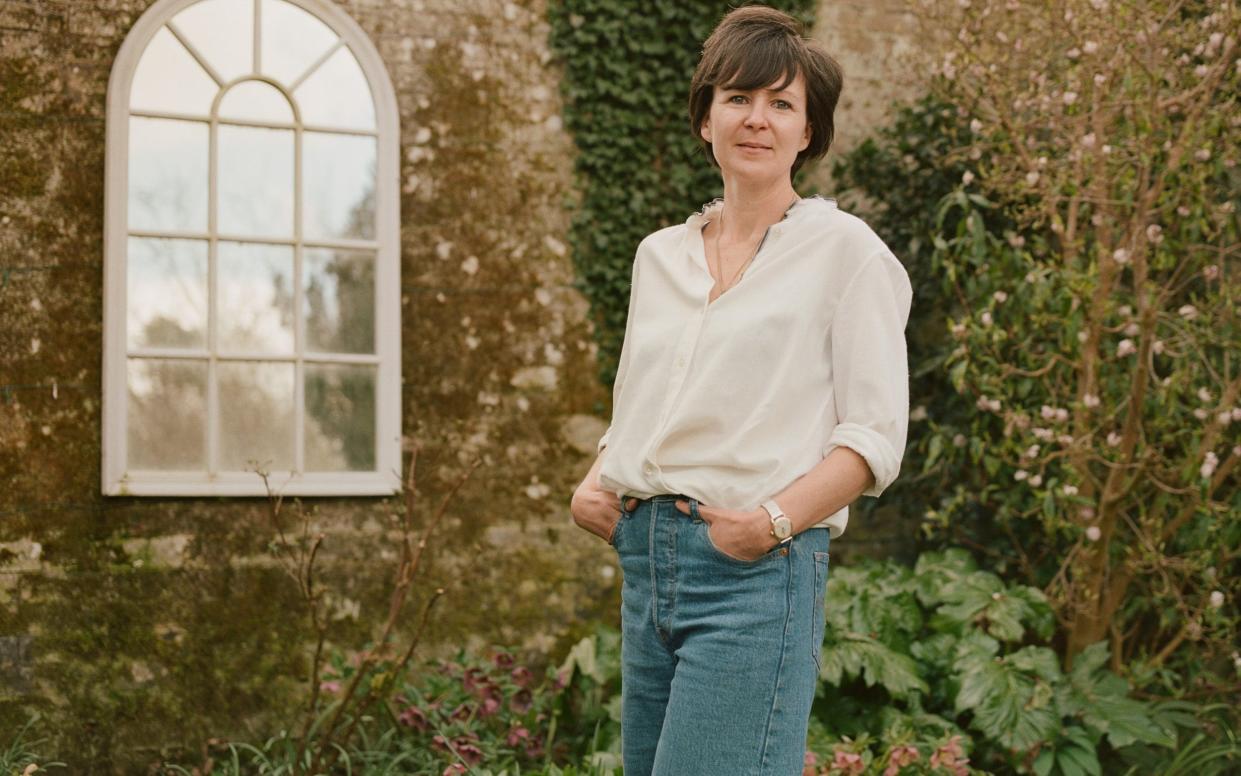Olivia Laing’s history of gardens beguiles and delights

- Oops!Something went wrong.Please try again later.
Olivia Laing’s The Garden Against Time begins with a dream of a garden. She opens a door inside a house and finds it filled with plants. She first had this dream before she had a garden of her own but, as a lifelong renter, longed for one. Gardens brim with meaning for Laing. She calls the study of botany “an education in looking”, each plant so “interwoven into human history” that it becomes “a conduit through time”; “paradise haunts gardens”, she says, and “gardens haunt utopias”. Gardens are personal; a place to find a sense of home. And they are political; a way to understand things as they are and imagine how they could be.
In 2020, lockdown looming, Laing found her dream garden. She and her husband bought a house with walled RHS gardens which had once belonged to the gardener Mark Rumary. The restoration of this garden anchors the book in Laing’s life as her research ranges through gardens of the past, real and imagined. This approach, combining memoir with cultural criticism, is familiar from Laing’s other work. In The Lonely City, her experience of being unexpectedly alone in New York sheds intimate light on a cultural history of urban alienation. In The Garden Against Time, making a garden frames wide-ranging explorations of (mostly English, mostly private) gardens through history in a series of interlinked essays, meandering through the English Civil War, nineteenth-century socialism, and the bombsites of WW2.
The book itself feels like a garden, the kind of garden Laing admires, which favours abundance over orderliness. It brings together a diverse cast of characters – among them John Milton, WG Sebald, Derek Jarman – and in doing so creates unexpected and striking entanglements. For Laing, gardens are sensuous, hallucinatory, fecund; qualities she finds in the work and lives of the artists and writers she encounters. This is echoed in overflowing language. Lists abound, like this one of orchids quoted from John Clare’s papers: “cuckoo, bee, spider, lily leaved, spotted, military, female, Red Man, Green Man”.
A picture emerges of gardens as contradictory places. The English country house with its landscaped gardens might be beautiful but “beauty is not a virtue that floats free of cost”. Not only were many financed by profits from slavery, but their creation often meant enclosing common land and emptying villages: “an idyll, to be sure, assuming you’re entitled to be an inhabitant”. An idea of lost commons hovers in the background. Laing quotes John Ball, the priest executed for his part in the Peasants’ Revolt: “things can not go on well in England nor ever will it until everything shall be in common… and all distinctions levelled”.
Gardens can represent an exertion of power, but they can also be a refuge from oppression. It puzzled me that Laing writes about a “common paradise” from inside a walled garden, but she paints a convincing picture of a kind of garden which creates safe seclusion in which to flourish. One of Rumary’s acquaintances tells Laing “He was gay when it wasn’t good to be gay”. Benton End, the house and gardens belonging to the painter Cedric Morris, was a “refuge” where guests could be themselves whatever their sexuality. At a time when homosexuality was illegal, “the garden walls protected them”.
Laing’s search for a “common paradise” ends with a drought and a hosepipe ban. Her garden withers, farmland burns. As models for a future of ethical gardening, she turns to “wilder, richer” and more resilient gardens like those at Great Dixter, noted for their biodiversity. If more gardens were managed in this way, they would form “a great network: a quilt made by many hands”; “private” but ecologically “open”. This is “the first utopia” Laing encounters that she believes “truly served the commons, instead of sabotaging it”. It is how she comes to see her own garden. I couldn’t quite follow the line of thinking that makes sustainably managed private property a commons. I wonder if, taken in the wrong spirit, this idea might even be detrimental to the many people in Britain still without access to outside space; landowners already make dubious conservation arguments to oppose responsible access to land designated as commons. Nevertheless, there is much to relish in this abundant book; it might not have all the answers, but it plants many seeds.
The Garden Against Time: In Search of a Common Paradise is published by Picador at £20. To order your copy for £16.99 call 0808 196 6794 or visit Telegraph Books

